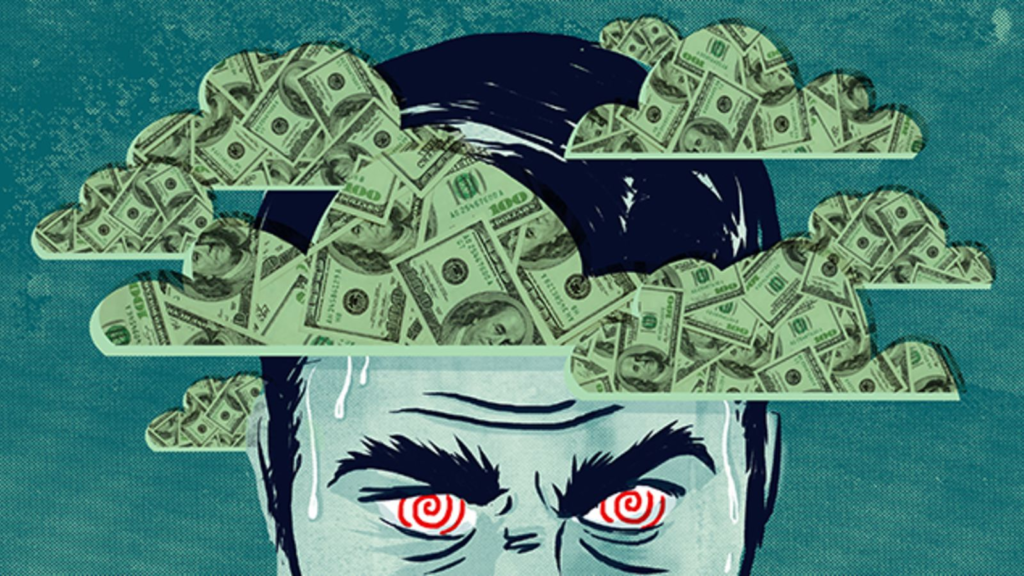Here’s a cold hard fact – we’re all affected by biases.
Not just the political or media biases (ie. red state vs blue state or CNN vs FOX), but also, cognitive biases.
We can define cognitive biases as a mistake in reasoning, evaluating, remembering or other cognitive processes. They often occur as a result of holding onto a preference or belief despite there being contrary information.
You might have learned a bit about them in a psychology class or in a sales/marketing textbook back in school.
Speaking of the latter, we’re going to examine how cognitive biases affect your spending habits and purchase decisions.
1- Placebo Effect

What it is: The placebo effect occurs when something produces a desirable effect simply because you believed it would do so in the first place. It is one of the most recognized cognitive biases to affect humans.
Effects On Spending: For anyone who’s a health nut or fitness buff, you’ll know how strong the placebo effect can be. You might feel more energetic, in a better mood or recover from a workout faster because you believed a supplement would do that for you. These supplements definitely work for those who need it. However, for many others, they waste hundreds of dollars on a product because of its imagined effects, not real results.
2- Confirmation Bias

What it is: A dangerous one, confirmation bias refers to the fact that we usually only listen to information that aligns with our preconceptions. It’s a reason why arguments with “flat-Earthers” and “anti-vaxxers” often go nowhere.
Effects on spending: When shopping with a confirmation bias, you’ll only consider buying products or services you already consider to be superior. It’s a losing strategy because you might miss out on cheaper and even better alternatives. However, it goes further. When dealing with health-related services, you might overlook a treatment or program that’s far better than the ones you think are more effective. Unfortunately, this can have serious consequences to your wellbeing.
3- Bandwagon Effect

What it is: When a group of people (especially influential people) subscribe to a belief, then we are more likely to adopt that belief ourselves.
Effects On Spending: The bandwagon effect is everywhere. For example, if 1,000 people on Amazon give a product a 5-star review, you might be more inclined to buy it, even if it’s overpriced or unhelpful. It’s also the reason why you might line up for a new iPhone (even if the screen is just a bit brighter), or buy a plan a vacation to a place you never really cared to visit (because of Instagram pics).
4- Anchoring Bias

What it is: The anchoring bias involves an over-reliance on the first piece of information someone gets, ignoring other information that may be just as important, if not more. It’s the reason why if you get into a fender bender, the person who reports gets to the collision centre first will likely convince the police more – even if they’re lying!
Effects On Spending: Anchoring applies to almost any and every shopping situation in the sense that we take the listed price of a product at face value. We often know that the listed price of a product is marked up (sometimes by hundreds of percent), but we may still say that it’s a “good deal”. Case in point, think about the cost of a common clothing item such as a crewneck. A retail store could sell it for $34.99, which you might say is worth it. With an anchoring bias in effect, you might ignore claims that you can get a similar crewneck for $19.99, claims which could be a 100% real. In effect, you would spend more money than you need to.
5- Choice-Supportive Bias

What it is: Familiar with the classic “love-hate” relationship or the phrase “ignorance is bliss”? They aptly describe the choice-supportive bias, which refers to the act of choosing something because of a positive experience a person had with that thing, even if it has glaring flaws.
Effects on spending: Sometimes we pay money for things we know make us unhappy, either because they’re either too expensive, too unreliable, or too uncomfortable. For example, you may dislike Mazda cars (and we’re not saying they’re bad) because they don’t give you the performance you’re looking for. Nevertheless, you might continue to buy them because you have many childhood memories of road trips in a Mazda vehicle with your family.
No One’s Immune to Cognitive Biases
Cognitive biases have been with us forever.
They can explain many of the good or bad decisions made by famous historical figures, biblical or literary characters and many of the everyday choices we make.
You don’t need to approach cognitive biases as psychologists do, but knowing what they are can help you think more carefully about your purchasing decisions. In other words, a knowledge of cognitive biases can keep you financially healthy.
But of course, once you know what they are, you’ll have to exercise some willpower against them if you truly want to save some bucks. We’ll give you some tips on how to do so in our next post.

